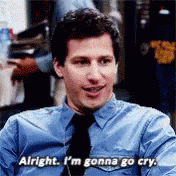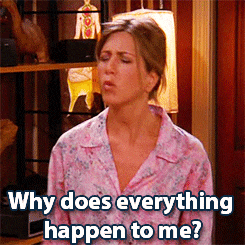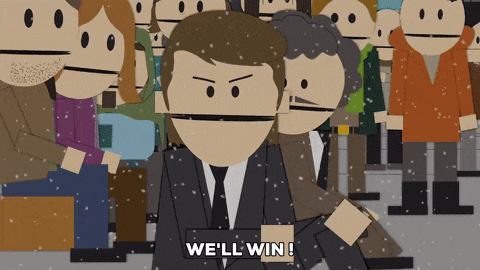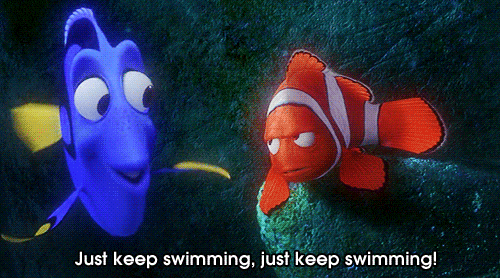In my last post, I reflected on how difficult it can be to build relationships, trust, and visibility when things are tough for us both personally and professionally. I was struggling to reconcile the need to do these things when circumstances work against us, and my injury has unfortunately led to continued absences which further damage my ability to be reliable and relevant with every day off.

I recently found a Reddit post from an early career teacher who was struggling with similar feelings of guilt and ineffectiveness due to a bout of the flu. The comments from fellow teachers indicated that this is a widespread problem among our profession, and we often find it hard to put ourselves first in difficult times for fear of failing our students or adding to our co-workers already-intense workloads. I’m far from alone in these thoughts, so I thought for this post I’d share a few things that have helped me recently.
After all, as a wise woman in a fabulous dress told me, sometimes we need to stop and reframe things to put them into a more helpful perspective!

Reframe Our Understandings and Look For ‘Chopportunities’
One thing to consider is what it actually means to be reliable and reframe our understandings. Cambridge dictionary offers the following definitions:
- Someone or something that can be trusted or believed because he, she, or it works or behaves well in the way you expect;
- Deserving trust; dependable;
- Someone you can trust to work hard and do what they say they will do.
ChatGPT offers a similar breakdown: Being reliable means consistently performing a task or fulfilling a duty with accuracy, dependability, and trustworthiness. A reliable person can be counted on to follow through on commitments, meet deadlines, and deliver results consistently. They demonstrate consistency in their actions and behavior, which builds trust and confidence in others.
Interestingly, neither of these sources say anything about showing up 100% of the time. I’ve been lucky that I’m in the position to work from home a few hours each day, so I’m still following through on my commitments and meeting deadlines where possible even if I’m not physically present. Given the circumstances, I’m working to the best of my ability, even if that capacity is somewhat reduced. I’ve previously written about the idea of the ‘chopportunity’ – a challenge that can be reframed as an opportunity. While I might not be physically present to teach classes and support people on site, I can instead view this as an opportunity to get some admin work done without interruption.
Be Kind to Ourselves
However, even if I wasn’t able to work from home, it’s important for educators to remember is that there’s no prize if we sacrifice ourselves upon the altar of teaching! Martyrdom might be a good career move for aspiring saints, but for teachers (and many other professions) sometimes, to be our best selves and to ensure we continue working to our best abilities, we need to take the time to heal. If I need to take a day or a week or even a month to recover from illness or injury, then that’s what is needed. We’re not the Terminator, able to sacrifice ourselves and then resurrect for several sequels. At the end of the day we’re human and need to treat ourselves with kindness (and no, this doesn’t mean ordering Uber Eats).

Watching and redirecting negative self-talk is a big one here. One helpful strategy is to treat yourself like you would a colleague or a friend. Would you criticise them for not running a class when they’re off due to injury or illness? Would you think of them as unreliable for taking the time they need to heal? We wouldn’t talk to others that way and I certainly wouldn’t put up with the kids treating each other poorly in my classroom, so it’s important that we don’t talk to ourselves negatively either.

Don’t Make It Personal
In this instance, I need to remind myself that I’m not letting others down; my circumstances, which are absolutely beyond my control, are letting others down. I’m not the main character in this narrative, and I’m not responsible for the education system which makes it so hard for teachers to take time off without impacting our jobs. I’m an NPC, a cog in the machine, another brick in the wall. My guilt around letting others down therefore is a reflection of systemic issues rather than any personal malice or incompetence. Worrying about not being there for my colleagues and students might be a valid concern, but it’s definitely not helpful to dwell on and forget the wider context of my absence.

Control What You Can
“God grant me the Serenity to accept the things I cannot change,
Courage to change the things I can, and
Wisdom to know the difference.”
I’m not an alcoholic nor am I particularly religious, but there’s a lot of wisdom in the AA Serenity Prayer. Our fears and negative thoughts are often fed by the thought of ‘what if’ which can cause us to spiral. What if my absence makes things harder when I return? What if the lack of access to the library space affects the momentum I’ve built with the library programs? What if teachers won’t trust me and want to work alongside me since they can’t rely on me? I could go on, but it really wouldn’t be helpful. I can’t change what how others respond to my absence or the fact that I can’t physically be present right now.
Instead, I need to focus on ‘what is’ and, in particular, what I can control in this situation. I am supporting my students and colleagues where possible by working from home and teaching online. I am taking the time I need to heal so I minimise the risk of reinjury, especially considering that this isn’t the first time it’s happened at work. I am giving my body what it needs to be able to perform my duties effectively when I return. And, most importantly, my actions (where possible) are still aligning with my values, and I’m celebrating my successes as they come, however big or small they might be. After all, I’m very fortunate in my role to be able to have the impact that I do!

So there you have it – my rambling thoughts on how we can live our best lives even when things go wrong. If anyone reads this and has other tips on how to get through difficult times as teachers, feel free to comment below!





